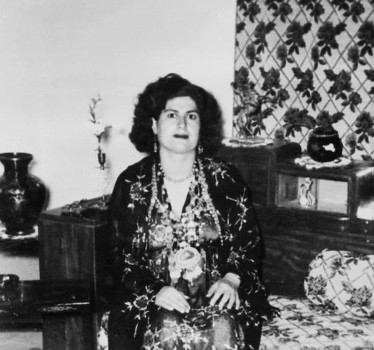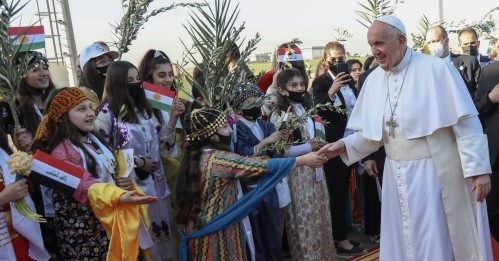Iraq is enjoying its most stable period since 2003. Armed violence continues in various forms but is sporadic, fragmented, and localized. However, the country remains fragile and divided, and its people face a range of profound challenges that the country struggles to address. This fragility has a wide range of effects, impacting everything from politics to the economy and regional relations.
The impact of fragility on politics in Iraq
Iraq has a multi-ethnic and multi-sectarian society, and political power is often divided along these lines. However, this division has led to factionalism, where different political groups represent different religious and ethnic communities. Conflicts and power struggles between these factions have sometimes led to political instability, creating social divisions and hindering the development of a unified national identity. Reconciliation efforts to address historical grievances and build community trust are ongoing. Fostering social cohesion and inclusivity is essential for the country’s long-term stability.
Another longstanding issue in Iraqi politics is widespread corruption within government institutions, which has eroded public trust and hindered effective governance. Efforts to combat corruption have been ongoing, but progress has been slow. Similarly, issues such as corruption, unemployment, and inadequate public services have sparked public protest and civil unrest. Protesters have called for political reforms and an end to the dominance of political elites. Similarly, frequent government changes and conflict over key positions have created a climate of political instability, hampering the government’s ability to address pressing issues and improve the overall situation.
Addressing security
Security concerns often shape political decisions, and the government must balance the need for security with addressing the demands of various political factions. Despite the defeat of ISIS in major urban areas, there have been lingering security concerns related to the presence of insurgent groups in the country. These groups, sometimes affiliated with ISIS or other extremist ideologies, continue to operate in certain regions, carrying out attacks and destabilizing the security environment. Terrorism is a key concern, with both domestic and international terrorist organizations posing a threat to the security and stability of the country. This, in turn, has led to significant internal displacement and created a refugee crisis. Large numbers of people have been forced to flee their homes, increasing pressure on security resources and complicating efforts to maintain stability.
Iraq has been a battleground for regional and international influence, with different external actors seeking to shape its political landscape. Iraq shares borders with several countries, and the control of these borders is vital for preventing the infiltration of militants, illegal activities, and arms trafficking. Beyond border security, the interference of the region’s countries in the affairs of Iraq has led to instability, the emergence of factions belonging to these countries outside the authority of government, and an increase in the spread of uncontrolled weapons.
Iraq has a diverse population with various ethnic and religious communities. Tensions between these groups, exacerbated by historical grievances and power struggles, have contributed to security challenges. Managing these tensions is crucial for maintaining stability, as is maintaining the relationship between political and military entities in Iraq. Coordination and cooperation between various security forces and government agencies are essential for addressing security threats effectively.
Economic risk factors
Political conflict has a direct impact on economic stability. Uncertainty in the political environment can deter foreign investment, disrupt economic planning, and delaying the implementation of economic reforms. Corruption further contributes to this issue, hindering investment, impeding economic growth, and contributing to inequalities within the country.
Iraq’s economy is heavily dependent on oil exports, making it vulnerable to fluctuations in global oil prices. The reliance on a single commodity exposes the country to economic volatility and challenges in managing fiscal sustainability. Commodity price fluctuations, along with political and external factors, also pose a threat to the stability of the Iraqi dinar. These concerns have put a strain on public finances, showing that effective budget management is critical to maintaining economic stability.
Key economic concerns are directly linked to social spending demands. The country has faced significant challenges in rebuilding and maintaining infrastructure, especially in conflict-affected areas. This includes repairing damage to transportation, electricity, health, education, higher education, and other essential services networks, which may hinder economic development. High levels of unemployment, particularly among the youth, is another factor impacting economic well-being. The government faces challenges in generating enough job opportunities to meet the demands of a growing population.
Human rights concerns
The aftermath of recent conflicts, especially the fight against ISIS, has caused significant internal displacement, placed a strain on social structures and services, and left lasting psychological and social scars on individuals and communities. Dealing with trauma, both at the individual and societal levels has been a significant social challenge. Conflict has also disrupted access to education and healthcare services, and efforts to rebuild and maintain a robust social infrastructure, including schools and healthcare facilities, are ongoing.
Ensuring the protection of vulnerable population groups is key to upholding human rights in Iraq. Despite efforts to address gender inequality, challenges persist, including disparities in education and workforce participation. Social norms and cultural factors continue to influence gender roles in Iraqi society. Additionally, high levels of youth unemployment contribute to social discontent and frustration, particularly among the younger population. The lack of economic opportunities can impact the social fabric and contribute to unrest and discontent.
The Iraqi Constitution
The Iraqi Constitution, adopted in 2005, defines a federal structure with a balance between centralized and decentralized powers and recognizes and protects the rights of different ethnic and religious groups. However, how power-sharing mechanisms were implemented may have exacerbated ethnic and sectarian divisions. The focus on ethno-sectarian quotas for political representation has sometimes deepened divisions rather than fostering a sense of national unity. Additionally, the struggle over control of resources and power between the central government and regional entities, especially in oil-rich regions such as Kurdistan, has led to disagreements and tensions
The constitution-drafting process was complex and was a focal point in the competition for political power. The perception of exclusion and underrepresentation has fueled grievances between specific communities. Parliament and Federal Court decisions are issued by the majority at the expense of the minority, which led to an imbalance in the consensus and partnership based on which governments were formed.
Lastly, the Constitution did not provide a straightforward solution to address security challenges, especially those arising from rebellious movements and external influences. The lack of adequate security mechanisms has contributed to the fragility of the state. Regional and international factors have played a role in exacerbating fragility, with the provisions of the Constitution related to the relationship between Iraq and its neighbors and the presence of foreign actors having implications for internal stability.
Iraq and the Kurdistan Regional Government (KRG)
The relationship between the Iraqi federal government and the Kurdistan Region has historically been tense over issues such as land disputes, oil revenue distribution, and security issues. The KRG has sought to uphold the federal model of government. In contrast, the Iraqi government in Baghdad has sought to maintain national unity by promoting a strong central government, which contradicts the Iraqi Constitution.
A number of longstanding disputes continue to create tension between the KRG and the Iraqi government. The status of areas such as Kirkuk, claimed by both the KRG and the Iraqi government, remains undetermined. Controlling these areas has economic and strategic implications. Additionally, disagreements over how to share oil wealth and manage oil exports have been a controversial issue. This has in turn affected the allocation of the federal budget, with delays in budget payments from Baghdad to Erbil straining ties. Lastly, political disagreements between the KRG and the central government have contributed to general fragility.
Various regional armed groups operating within Iraq have sometimes led to security concerns. Coordinated efforts against common security threats, such as ISIS, have brought the two sides together at times, but differences remain. The implementation of power-sharing agreements and the Federal Court’s decisions against the Kurdistan Region have exacerbated tension in relations between the Federal Government and the KRG.
It is essential to realize that, although the Constitution has had an impact, Iraq’s fragility is affected by historical legacies, economic challenges, geopolitical factors, and external interventions. Addressing fragility requires a comprehensive approach that goes beyond constitutional considerations. It includes promoting inclusivity, strengthening institutions, and addressing social and economic issues. Internal reconciliation and building bridges of trust between the components of Iraqi society is the basis for getting out of these fragilities and building a new Iraq based on equality among the Iraqi people.
Saman Shali is a political analyst, has been passionately involved in advocating for Kurdish rights since the mid-1970s.

